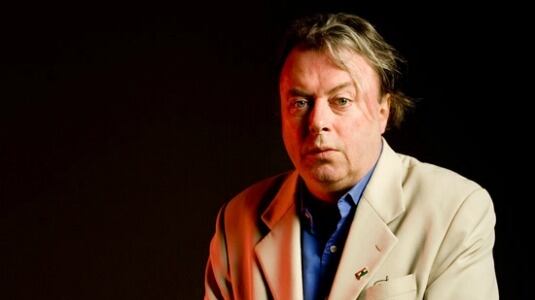
My National Post column this weekend describes the memorial service for Christopher Hitchens, who died December 15, 2011:
They came to mourn Christopher Hitchens in the Great Hall of New York’s Cooper Union, where Abraham Lincoln gave the speech that launched his campaign for president in 1860.
The hall was filled with family, friends and readers; intimates of 40 years’ standing, and those who knew him only from the printed page and stage appearance; all still wounded by a loss that remains fresh at four months’ distance.
Most of the memorial took the form of readings from Christopher’s own works, occasionally enlivened by editorial comment. The biggest laugh was claimed by the writer, actor and gay-rights exponent, Stephen Fry.
Christopher, he said, had condemned as more trouble than they were worth: champagne, lobster, anal sex and picnics. “Three out of four, Christopher,” said Fry.
The piano was played — beautifully — by one of the directors of the National Institutes of Health, who also proudly identified himself as “a follower of Jesus Christ.” He had guided Christopher through some experimental therapies for the esophageal cancer that killed him. He and Christopher had many fierce debates over Christopher’s assertive atheism. He reminded the audience of the words of Proverbs: As iron sharpeneth iron, so a friend sharpens the mind of his friend.
The readings covered almost every aspect of Christopher’s life and work, with one very notable exception: His advocacy of the overthrow of Saddam and the liberation of Iraq. If Christopher had been present in person to guide the ceremonies, I doubt he’d have spared the sensitivities on that score of his liberal, literary New York and London admirers. He lived to provoke, without inhibition and without regret.
Even when he changed his mind — which on Iraq he never did — he very seldom, if ever, expressed regret for his previous view. He saw in his life a fundamental moral and intellectual continuity — even when that continuity eluded the eyes of those who knew him best and longest.
Martin Amis, who delivered the climactic eulogy, joked about Christopher’s mock-vainglorious references to himself in the third person by his nick-name, “the Hitch”: “Not usually a sign of unclouded mental health,” said Amis. And then he quoted the 20-something Hitchens’ pledge, “wherever there is oppression, immiseration, or exploitation, the pen of the Hitch will flash from its scabbard.” That’s how they talk at British universities perhaps, and it’s more than a little embarrassing to hear such words recalled in later life, even understanding the saving veneer of irony. And yet more than most who say such things, Hitchens did live up to that creed — imperfectly, as is inescapable for any human person, and yet not so imperfectly as to invalidate the promise.






